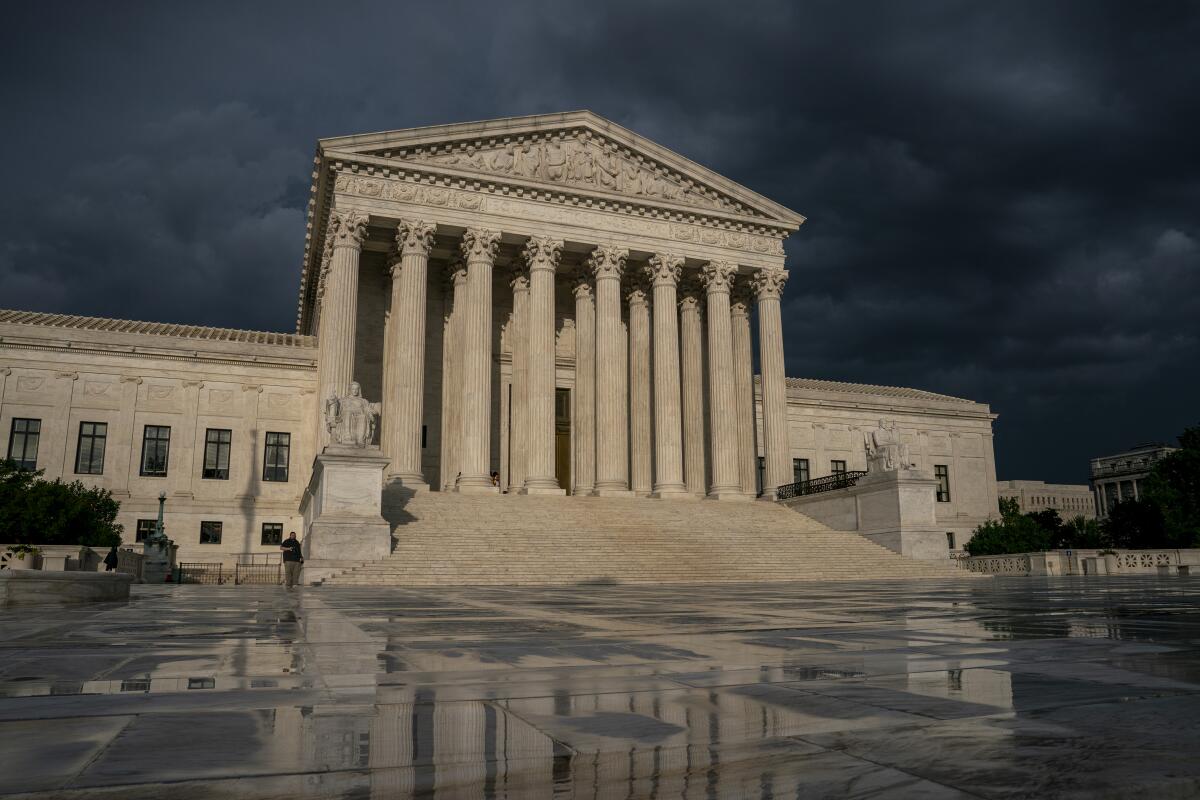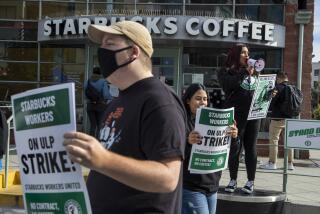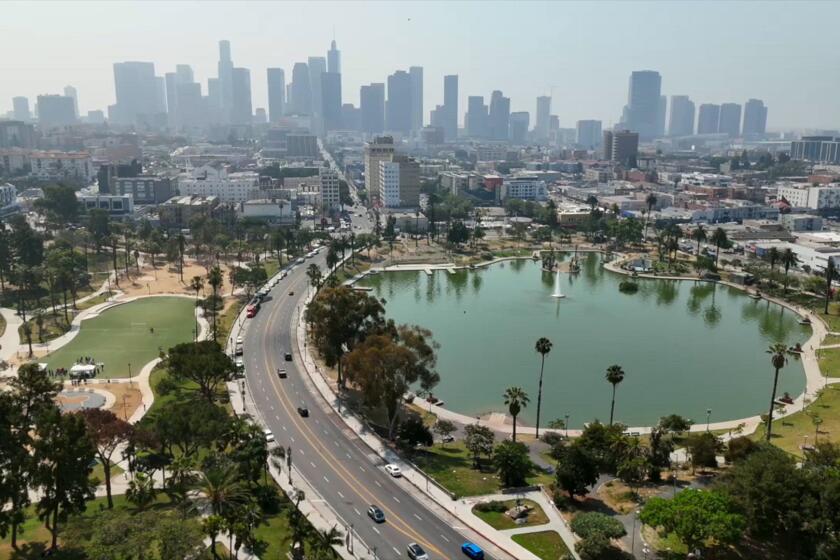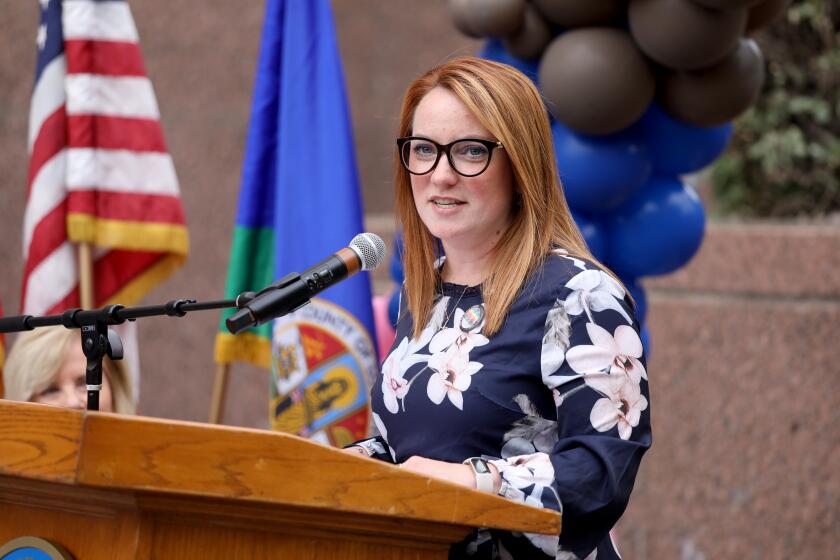Editorial: The Supreme Court should side with California farmworker organizers in this case

A 45-year-old California regulation allows union activists limited access to private farm property to try to organize workers there, but the U.S. Supreme Court’s conservative majority — which already has limited some union rights — could end that practice in a case that reached oral arguments Monday morning. If the court rules against the regulation, it would not only be a blow to the rights of some California workers to organize a union, but it could also have far-reaching impacts on other parties’ access to private property, including health and safety inspectors. That would be unfortunate.
The case, Cedar Point Nursery vs. Hassid, arose in 2015 after a large grape and citrus grower, Fowler Packing Co. of Fresno, refused entry to union organizers despite the state mandate, and the Cedar Point Nursery of Dorris, Calif., complained that labor agitators entered its strawberry packing plant and disrupted work. (Union officials said the disruption was caused by the workers themselves and did not involve outside organizers.)
The specifics of those actions, though, don’t have much bearing on the legal issue. Under the regulation, organizers are allowed access to nonwork areas of the property for an hour before work begins, for an hour at lunch, and for an hour after work ends.
They can do so for a maximum of 120 days a year — four 30-day blocks of the calendar — after notifying the property owner. And their numbers are limited: no more than two organizers for the first 30 workers, then another organizer for every 15 additional workers.
The access is rooted in the recognition that migrant farmworkers can be difficult to reach; at the time the regulation was adopted, they often lived and worked on the farms, which made it hard for organizers to communicate with them outside the workplace. Fewer migrants live in field housing these days, but they remain itinerant and difficult to reach off-premises.
A half-million barrels of DDT-laced sludge dropped off the coast decades ago must be removed to limit the damage to wildlife and humans.
The two businesses, backed by the conservative Pacific Legal Foundation, argue that giving organizers access to their farms amounts to a government taking of their property without just compensation, which is barred by the 5th Amendment. But it’s a stretch to equate a regulation requiring limited access to private property for a specific purpose with a government “taking,” which generally refers to private property being seized or co-opted to such an extent that the owner loses access or suffers damage in some other way.
Property owners have rights, including fair compensation if their property is taken by the government. But in the case of the California regulation, the owner neither loses access nor suffers harm when organizers visit under proscribed conditions to talk to workers about their right to form a union.
Those workers gained that right under the first-in-the-nation California Agricultural Labor Relations Act of 1975, essentially a state-level expansion of the 1935 National Labor Relations Act, which, while recognizing a broad right to organize, excluded farmworkers and domestic servants. Notably, the federal exclusions were rooted in racism and regional politics. Southern members of Congress were not about to support giving union rights to labor pools of overwhelmingly Black farmworkers and Black female domestic workers, and rural states with powerful farm lobbies objected, as well, perceiving the law to be onerous for small farmers.
California SB 82 should continue to recognize the important distinction between simply stealing property and doing so by force or fear.
The California regulation strikes a balance between these interests. It does not allow organizers a permanent foothold, and since it limits their presence to nonworking hours, it precludes them from interfering with the daily work of the farm. But it does give union organizers a place and time to meet with workers, who are free to ignore them — or to pepper them with questions and learn about their rights. Notably, the farm operators have plenty of access to their workers to make counter-arguments.
As Chief Justice John G. Roberts Jr. observed in his opening questions, “it benefits public interest to have limited access” of union organizers to farm work sites, similar to that afforded safety inspectors. It benefits workers, too, to have access to information — which they are free to heed or ignore — in their workplace without running afoul of the 5th Amendment’s protection of private property rights. The justices should recognize that the California regulation strikes a reasonable balance of interests.
More to Read
A cure for the common opinion
Get thought-provoking perspectives with our weekly newsletter.
You may occasionally receive promotional content from the Los Angeles Times.








